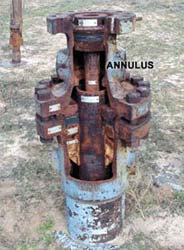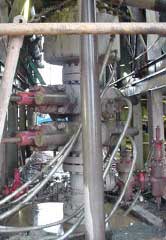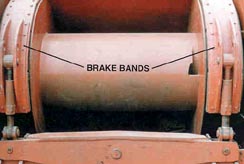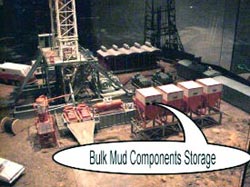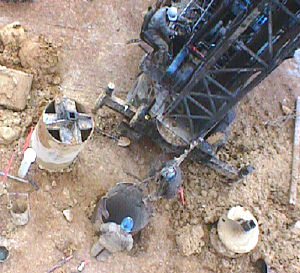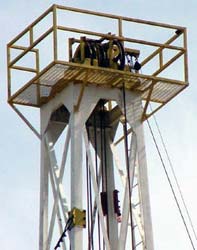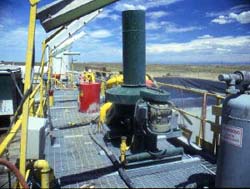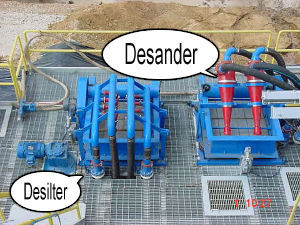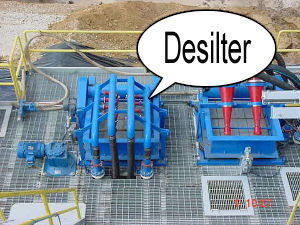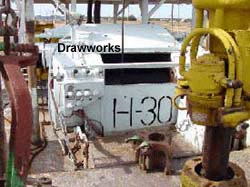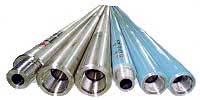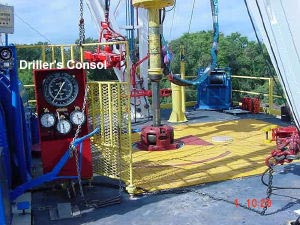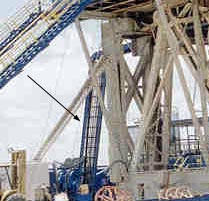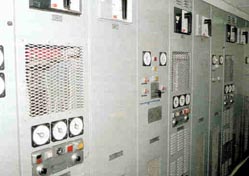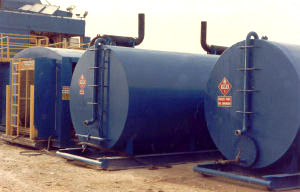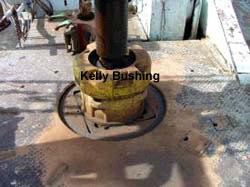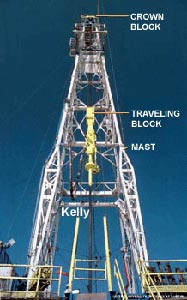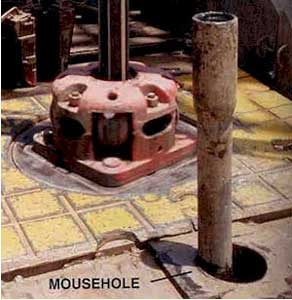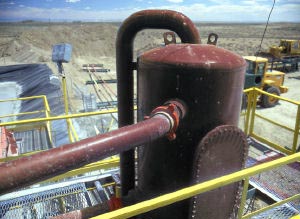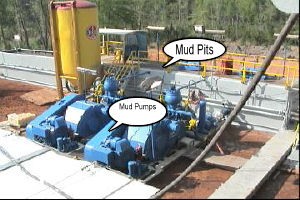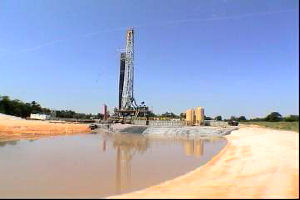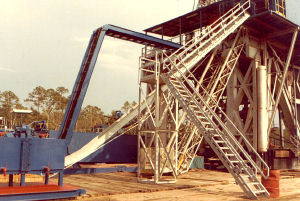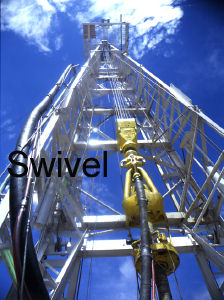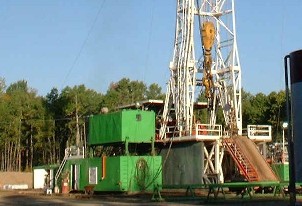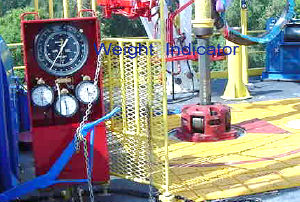Oil and Gas Well Drilling and Servicing eTool
Oil and Gas Well Drilling and Servicing » Glossary of Terms - L
† This is an abridged version of the Dictionary of Petroleum Terms provided by Petex and the University of Texas Austin. © Petex 2001
land rig
n: any drilling rig that is located on dry land.
latch on
v: to attach elevators to a section of pipe to pull it out of or run into the hole.
latch sub
n: a device, usually with segmented threads, run with seal subs on the bottom of a tubing string and latched into a permanent packer to prevent tubing movement.
lay
n: 1. the spiral of strands in a wire rope either to the right or to the left, as viewed from above. 2. a term used to measure wire rope, signifying the linear distance a wire strand covers in one complete rotation around the rope.
lay down pipe
v: to pull drill pipe or tubing from the hole and place it in a horizontal position on a pipe rack. Compare set back
lead-tong hand
(pronounced “leed”) n: the crew member who operates the lead tongs when drill pipe and drill collars are being handled. Also called lead-tong man.
lead tongs
(pronounced “leed”) n pl: the pipe tongs suspended in the derrick or mast and operated by a chain or a wire rope connected to the makeup cathead or the breakout cathead.
lifting sub
n: a threaded device placed in the end of tubulars, such as drill collars to aid in lifting; also called hoisting plug.
liner
n: 1. a string of pipe used to case open hole below existing casing. A liner extends from the setting depth up into another string of casing, usually overlapping about 100 feet (30.5 meters) above the lower end of the intermediate or the oil string. Liners are nearly always suspended from the upper string by a hanger device. 2. a relatively short length of pipe with holes or slots that is placed opposite a producing formation. Usually, such liners are wrapped with specially shaped wire that is designed to prevent the entry of loose sand into the well as it is produced. They are also often used with a gravel pack. 3. in jet perforation guns, a conically shaped metallic piece that is part of a shaped charge. It increases the efficiency of the charge by increasing the penetrating ability of the jet. 4. a replaceable tube that fits inside the cylinder of an engine or a pump. See cylinder liner.
liner completion
n: a well completion in which a liner is used to obtain communication between the reservoir and the wellbore.
liner hanger
n: a slip device that attaches the liner to the casing. See liner.
location
n: the place where a well is drilled. Also called well site.
log
n: a systematic recording of data, such as a driller’s log, mud log, electrical well log, or radioactivity log. Many different logs are run in wells to discern various characteristics of downhole formation. v: to record data.
log a well
v: to run any of the various logs used to ascertain downhole information about a well.
logging devices
n pl: any of several electrical, acoustical, mechanical, or radioactivity devices that are used to measure and record certain characteristics or events that occur in a well that has been or is being drilled.
long string
n: 1. the last string of casing set in a well. 2. the string of casing that is set at the top of or through the producing zone, often called the oil string or production casing.
lost circulation
n: the quantities of whole mud lost to a formation, usually in cavernous, pressured, or coarsely permeable beds. Evidenced by the complete or partial failure of the mud to return to the surface as it is being circulated in the hole.
lost pipe
n: drill pipe, drill collars, tubing, or casing that has become separated in the hole from the part of the pipe reaching the surface, necessitating its removal before normal operations can proceed; for example, a fish.
lost time incident
n: an incident in the workplace that results in an injury serious enough that causes the person injured to be unable to work for a day or more.
lubricator
n: a specially fabricated length of casing or tubing usually placed temporarily above a valve on top of the casinghead or tubing head. It is used to run swabbing or perforating tools into a producing well and provides a method for sealing off pressure and thus should be rated for highest anticipated pressure.



